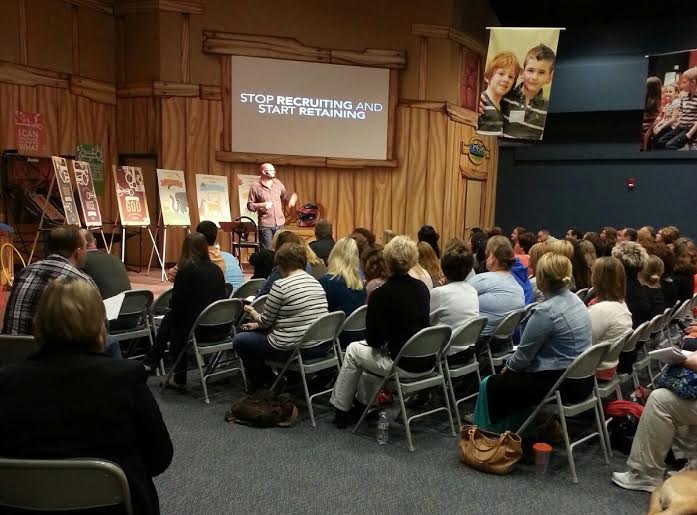As church leaders, we are familiar with the idea of evaluation, and often score events, weekend programming, and even ourselves with a scorecard mentality. Whether consciously or in the back of our minds, we have ideas of what a “win” looks like, and either reward or remove points accordingly.
A few years ago, our team realized that parents, students, volunteers, and other church staff were all evaluating with very different scorecards. While examining the same set of experiences, several sets of conflicting values and opinions would come to light.
One notable case of this happening was in reference to the student missions experience. Looking at the same outcome, one party was led to criticism while the other celebrated. Neither group had poor motives – everyone wanted students to be involved in loving others through cross-cultural missions – but strategy was not aligned. One group rallied that students should travel and serve together with their peers; the other group advocated for students serving alongside their parents.
Complicating the situation one step more was that as a multi-site church, we had passionate leaders at each of our campuses, not always communicating the same set of values. As we expanded our influence, we also risked segmentation and misunderstanding.
There are significant wins to both student-focused and family-focused missions experiences. Over the years, leaders have seen great success with both options. However, as an Orange church, we asked the question, “Which option elevates the role of the parent in the life of their child?” When asked this question, a room of leaders with dissonant views was able to come together on a solution. The straightforward solution of elevating the role of the family provides leaders across multiple sites to formulate a synchronized strategy and communication plan.
Multi-site magnifies the best and worst of your ministry. If as a team of leaders, you have failed to purposefully choose a strategy, then each site will draw their own conclusions and fill in the gaps with isolated opinions, not strategy. In the same way, choosing a well-defined strategy for how you interact with families, equipping leaders with the same core values, will wow your church with the care you have taken to provide everyone with the same score card.
When everyone has the same scorecard, everyone gets to celebrate the win.
As our leadership team wrestled with how to implement strategy across multiple sites, we learned that strategy must be communication with passion, clarity, and repetition, to ensure the greatest amount of adoption across a wide geographical area.
A final key learning is that you can only have one scorecard. We have developed a Family Map that integrates all ministry taking place from birth to high school graduation. We have begun using the Map internally as a means of deciding what elements fall within our core strategy. You can see more of this at http://www.1semester.com/freestuff/
What is your scorecard? What elements does your team value in evaluating outcomes?



